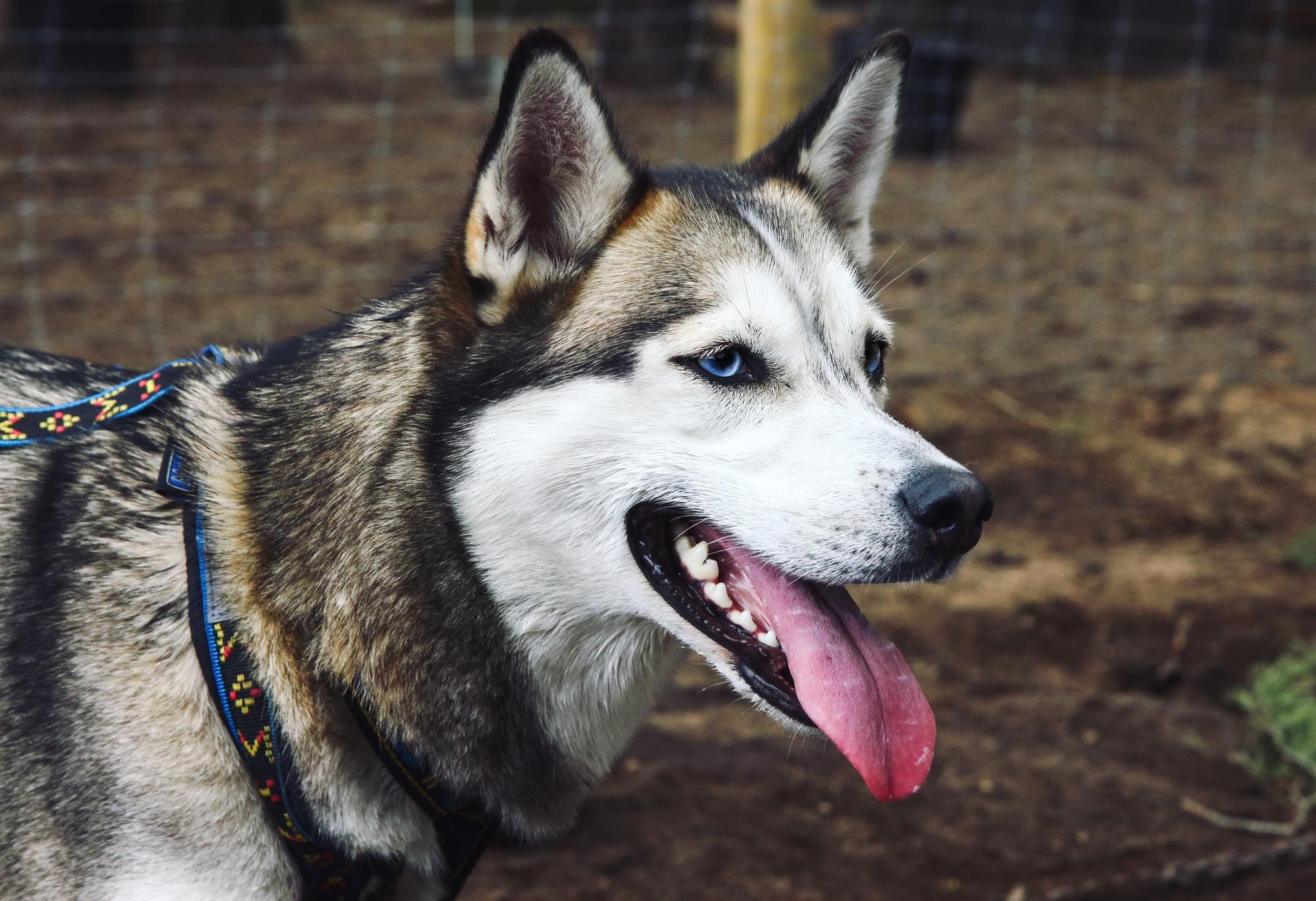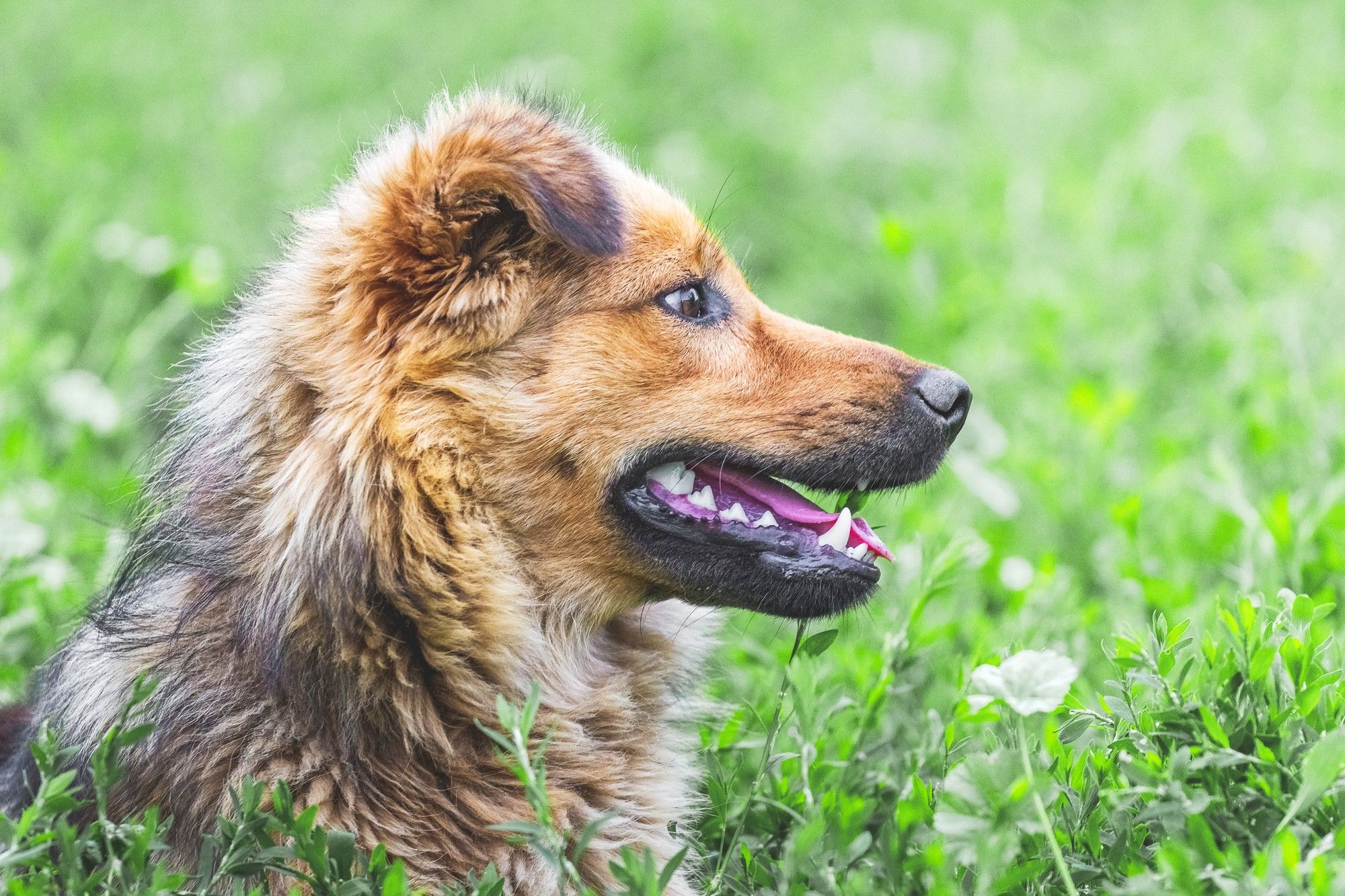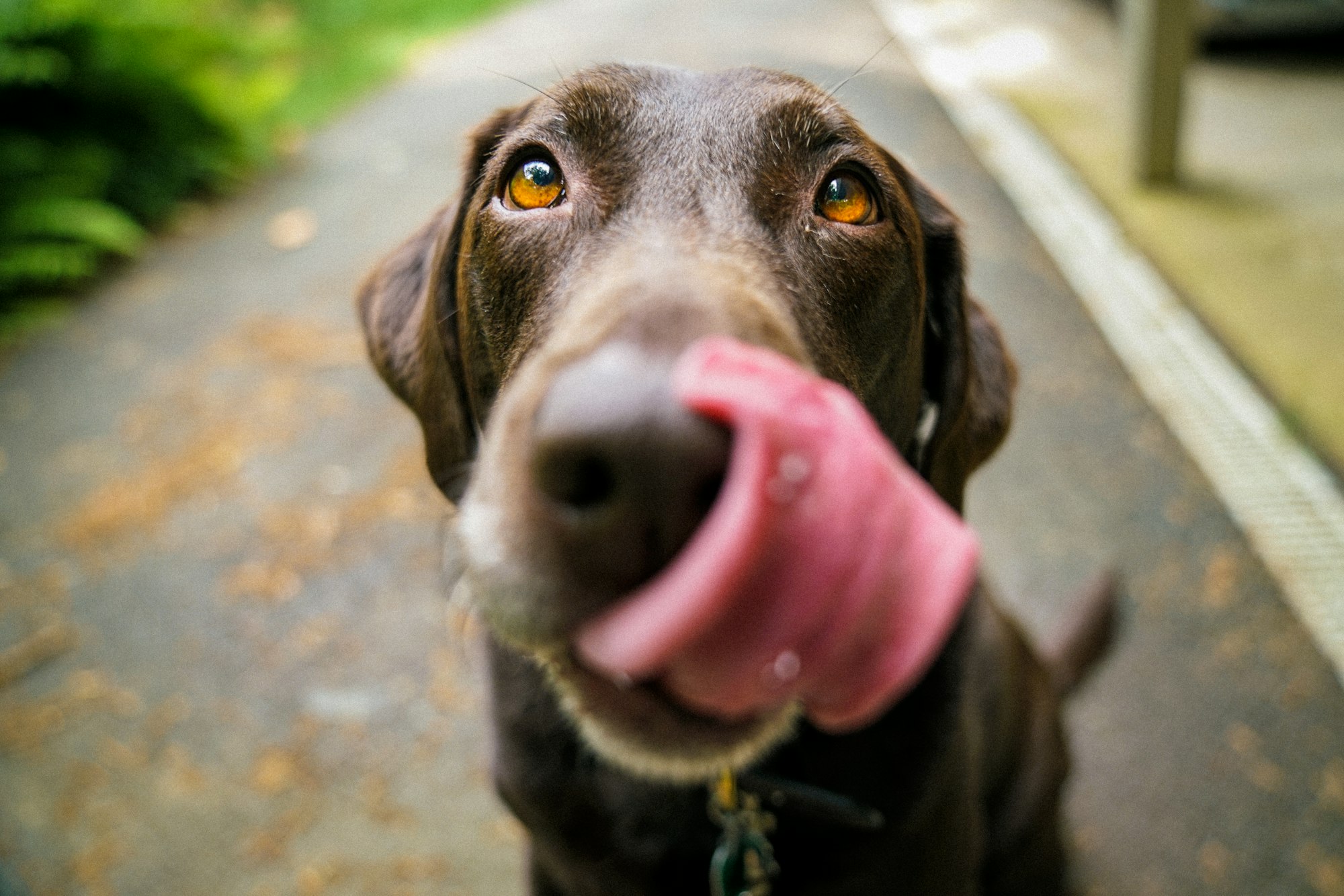Dogs, like humans, can experience a variety of health issues, one of which is a runny nose. If your dog has a runny nose, it could be a sign of mild or serious conditions. This article aims to provide an in-depth look into why your dog's nose may drip, exploring potential causes from common infections to more severe issues like nasal tumors.
We'll delve into reasons your dog may get a runny nose, be it due to harmless factors like having something stuck in their nose or more concerning problems such as fungal infections, nasal mites, or even specific dog breeds' predisposition to nasal discharge.
Whether your dog's nasal discharge is thick or clear, or if they exhibit more alarming symptoms like nose bleeds or bloody noses, we will detail the possible causes and treatments.
Our focus will not only be to help you understand why your dog might have a clear nasal discharge but also guide you on what treatment may be required if you suspect your dog's runny nose is due to a more serious condition.
Understanding the Basics of a Dog's Nose

A comprehensive understanding of a dog's nose's anatomy, function, and importance is crucial in comprehending the common phrase that states 'a dog's nose should always be wet.'
A dog's nose has intricate structures that allow them to sniff out scents and identify objects. The nasal cavity of dogs is divided into two parts, with each part containing turbinates that are lined with olfactory receptors.
These receptors help dogs detect even the faintest odors that humans cannot detect. The function and importance of a wet nose cannot be overstated.
A moist surface helps trap scent particles in the air, sticking to the mucus lining inside a dog's nostrils. Additionally, moisture keeps nasal tissues hydrated, allowing for better airflow and preventing dryness or irritation.
However, it is essential to note that not all runny noses or nasal discharge cases signal an issue; sometimes, dogs may experience allergies or environmental irritants like dust or pollen.
Understanding your pet's unique anatomy can help you differentiate between normal discharge and potential health issues requiring veterinary attention.
Why Your Dog Runny Nose?

The excessive production of nasal discharge in canines, commonly called a dog's runny nose, can be caused by various factors. The most common causes of nasal discharge in dogs include infections, allergies, foreign bodies stuck in the nasal passage, and anatomical abnormalities.
Infections caused by bacteria or viruses can result in inflammation of the nasal lining, leading to increased mucous production. Allergies such as environmental irritants or food allergens can also trigger an overproduction of mucous. Foreign objects like grass seeds or foxtails that get lodged inside the nostrils can cause irritation and lead to a runny nose.
To diagnose the underlying cause of your dog's runny nose, it is essential to consult with a veterinarian who will perform a thorough physical examination and possibly recommend further diagnostic tests such as blood work or imaging studies. Treatment options for canine nasal discharge will depend on the root cause. Antibiotics may be prescribed for bacterial infections while antihistamines are used for allergic reactions.
In cases where foreign bodies are causing irritation, they may need to be removed surgically. Regardless of the cause, it is crucial to seek prompt medical attention if you notice persistent or worsening symptoms as untreated conditions could lead to more severe health problems down the line.

Could My Dog Have Allergies?
Canine nasal discharge caused by allergies is a common condition that may require antihistamines for treatment. Dogs, like humans, can develop allergic reactions to various environmental substances such as pollen, dust mites, and mold spores.
When dogs inhale these allergens, their immune system produces antibodies that trigger the release of histamine and other chemicals in the body. This leads to nasal passage inflammation and increased fluid production, resulting in a runny nose.
To understand if your dog has allergies, here are five signs to look out for:
- Constant sneezing or reverse sneezing (a sudden honking sound)
- Itchy skin or ears
- Red and watery eyes
- Coughing or wheezing noises when breathing
- Excessive licking or scratching
Suppose you notice any of these symptoms along with a dog's runny nose that persists for more than a few days without any improvement from home remedies such as steam inhalation or saline drops. In that case, taking your pet to see a veterinarian is important.
Allergies can cause uncomfortable symptoms for dogs just like humans. Still, with proper diagnosis and treatment options available today, there is no reason why your furry friend shouldn't be able to enjoy life allergy-free.
Common Reasons for a Dripping Dog's Nose
A dog's nose can drip or run for various reasons, ranging from completely benign to more serious health concerns. Here are some of the most common:
1. Allergies in dogs
An overview of canine allergies includes a plethora of potential allergens that might be responsible for your dog's dripping nose. Allergies in dogs are similar to those in humans, and they can manifest as skin rashes, digestive problems, or respiratory issues.
The most common types of canine allergies are environmental allergies caused by pollen, dust mites, mold spores, and grass. These allergens can irritate the nasal passages and cause sneezing and a runny nose.
Aside from environmental triggers, specific food ingredients such as chicken, beef, dairy products, or grains can trigger an allergic reaction in dogs, leading to symptoms like itching skin or gastrointestinal upset. Even certain medications given to dogs may cause an allergic response leading to nasal discharge.
Insect bites from fleas or ticks may also lead to an allergic reaction in some dogs, causing swelling around their face and mouth area, leading to excessive drooling and drippy noses. Identifying the underlying allergy could take some time. Still, with proper diagnosis by a veterinarian through allergy testing it is possible to find relief for your furry friend's dripping nose caused by allergies.
2. Respiratory infections in dogs
Moving on from allergies, another possible reason why your dog's nose might be dripping is due to respiratory infections. These types of infections can be highly contagious and can be contracted in various settings, including the dog park or even at home with other dogs.
Two common respiratory infections that affect dogs are canine influenza and kennel cough. Canine influenza is a viral infection that affects the respiratory system of dogs. The symptoms include coughing, sneezing, fever, and a runny nose. While most cases are mild, some dogs may develop more severe symptoms that require medical attention.
On the other hand, Kennel cough is typically caused by a bacterial infection that inflames the dog's throat and bronchial tubes. The main symptom is a persistent dry hacking cough. Both diseases can easily spread among dogs through direct contact or contaminated surfaces.
It's essential to keep your dog up-to-date on vaccinations and avoid exposing them to potentially infected animals to prevent these infections from occurring in the first place.
3. Foreign objects in the nose
Foreign objects in the nose can cause nasal discharge in dogs, which is often accompanied by sneezing and difficulty breathing. The presence of foreign objects in the dog's nasal passages can be due to various reasons, including curiosity and exploration behavior or even accidental inhalation during playtime.
Here are four common foreign objects that can cause your dog's nose to drip:
1. Grass awns: These sharp-tipped grass seed heads can lodge themselves into a dog's nasal passages and cause irritation and inflammation.
2. Foxtails: These barbed grass seeds have a tendency to stick to anything they come into contact with, including a dog's fur or skin. Once lodged inside the nose, they can cause serious discomfort and infection.
3. Insects: Bees, wasps, and other flying insects can accidentally fly up a dog's nose during outdoor playtime causing inflammation or allergic reactions.
4. Debris: Dirt particles or small rocks that enter through a dog's nostrils during digging activities may get trapped inside the nasal passage causing irritation leading to discharge from the nose.
Suppose you notice your furry friend constantly pawing at their face or experiencing any other abnormal symptoms like coughing, gagging, or vomiting associated with discharge from their nose.
In that case, it is important to seek veterinary care immediately as some foreign bodies may require immediate removal under anesthesia to treat underlying conditions affecting the respiratory system properly.
4. Dental problems and their relation to nasal discharge
Dental problems in dogs have been linked to the presence of nasal discharge.
When a dog experiences dental issues such as gingivitis or tooth decay, it can lead to inflammation and infection in the oral cavity. This infection can spread to the sinuses and cause nasal discharge.
Additionally, when a dog has a tooth abscess, it can cause pressure on surrounding tissues, resulting in a runny nose.
To treat dental-related causes of runny noses, dog owners need to maintain good oral hygiene for their pets. This includes regular teeth cleanings and check-ups with a veterinarian.
In cases where an infection or abscess is present, antibiotics may be prescribed by the vet. If left untreated, dental issues pose risks for nasal discharge and other health problems such as heart disease and kidney damage.
Therefore, being aware of your pet's dental health is crucial for their overall well-being and preventing respiratory symptoms such as persistent nasal discharge.
5. Over-excitement or stress causing nose drips
Excessive excitement or stress can lead to an increase in sympathetic nervous system activity, stimulating nasal secretions in dogs. This causes the dog's nose to drip, which is a common occurrence among many dogs.
When a dog becomes over-excited or stressed, its body releases certain hormones that trigger a range of physiological responses, including increased heart rate and blood pressure. These hormonal changes affect the nerves that control the glands responsible for producing nasal secretions.
Furthermore, anxiety and stress can also cause dogs to breathe through their mouths instead of their noses. This leads to dehydration of the nasal passages and results in further irritation, causing more mucus production and dripping from the nose.
In some cases, this may also result in respiratory problems such as coughing or wheezing. Therefore, pet owners need to be aware of their dog's behavior and provide them with proper care and attention during periods of high excitement or stress to avoid any potential health complications related to excessive nose drips caused by over-excitement or stress.
How to Treat Your Dog's Runny Nose?
If your dog has a runny nose with clear discharge, there are a few steps you can take to treat the condition:
Monitor the symptoms: If your dog has a mild runny nose with clear discharge and is otherwise healthy and active, you can start by closely monitoring the symptoms. Minor irritants or allergies can often cause a runny nose and may resolve independently within a few days.
Determine the cause: Try to identify any potential triggers that could cause a runny nose in your dog. Common causes include environmental allergies, irritants like dust or smoke, foreign objects stuck in the nose, or viral infections. If you suspect an underlying cause, it's best to consult a veterinarian for a proper diagnosis.
Keep your dog comfortable: Ensure your dog is kept in a clean and comfortable environment. Avoid exposing them to excessive cold, heat, or irritants that could worsen the symptoms. Provide fresh water and make sure your dog stays hydrated.
Clean the discharge: If the discharge is clear and watery, you can gently clean your dog's nose using a soft, damp cloth or tissue. Be very gentle and avoid causing any discomfort to your dog. This can help remove any dried discharge and provide relief.
Humidify the air: If the air in your home is dry, using a humidifier can help moisturize your dog's nasal passages. This can provide relief and prevent further irritation.
Consult a veterinarian: If your dog's runny nose persists, worsens, or is accompanied by other concerning symptoms such as coughing, sneezing, lethargy, loss of appetite, or difficulty breathing, it's important to seek veterinary care. A veterinarian can physically examine your dog, identify the underlying cause, and recommend appropriate treatment.
Remember, it's always best to consult a veterinarian for an accurate diagnosis and proper treatment plan tailored to your dog's specific condition. They can provide you with the most reliable guidance based on your dog's symptoms and medical history.
Other Treatment Options for a Dripping Dog's Nose
Addressing the underlying causes of a runny nose or nasal discharge in dogs is crucial for proper treatment. Some dog breeds may be more prone to this condition, with various factors like allergies or foreign objects stuck in your dog's nose contributing to the cause.
Dogs with allergies may require antihistamines or immunotherapy to manage their symptoms and prevent further complications. This is particularly important if your dog is sensitive to specific allergens and dogs can be allergic to a wide range of substances.
On the other hand, respiratory infections like kennel cough or pneumonia may need antibiotics or other prescription medications to resolve the infection and alleviate symptoms, particularly if your dog has an infection causing a runny nose with clear nasal discharge.
The amount of discharge may vary depending on the severity of the infection. In more severe cases, surgery may be necessary to remove foreign objects lodged in the nasal cavity or tumors that are causing persistent nasal discharge.
Supportive care and lifestyle modifications can also significantly manage chronic conditions that cause a dog's nose to run constantly. Nose discharge, especially watery, may be reduced by keeping your home free of environmental allergens like dust mites, pollen, or mold.
These are common causes of a runny nose in dogs, and minimizing their presence can help control the symptoms. Additionally, providing your dog with a balanced diet, regular exercise, and proper hydration can improve its overall health and immunity against common infections.
Consulting with your veterinarian on appropriate treatment options based on your dog's specific condition is essential for effectively managing its nasal discharge. If your dog's nose runs regularly, or if the nasal discharge is clear but persistent, take your dog to the vet. They can identify the common causes and treatments for a runny nose and provide the right solutions.

Preventing a Dripping Dog's Nose
Regular veterinary check-ups, proper dental care, vaccinations, and maintaining a stress-free environment are essential preventive measures to keep a dog's health in optimal condition and prevent nasal discharge.
Regular vet check-ups can help identify any underlying health problems that may cause the dog's nose to drip. Early detection and treatment of respiratory infections or allergies can prevent the progression of these conditions into chronic diseases that could lead to nasal discharge.
Dental care for dogs is also crucial in preventing nasal discharge. Poor dental hygiene can lead to gum disease, producing bacteria that can travel through the bloodstream and infect other body parts, including the respiratory system.
Vaccinations protect dogs from infectious diseases such as kennel cough, distemper, and parvovirus, which could cause respiratory infections that lead to nasal discharge.
Finally, maintaining a stress-free environment for dogs is vital in preventing medical conditions such as anxiety disorders that could trigger excessive mucus secretion by glands in their noses causing dripping noses. Providing adequate exercise and socialization opportunities with other pets or people effectively reduces stress levels in dogs and keeps them healthy overall.
Frequently Asked Questions
Can a dog's nose be too wet?
Excessively wet dog noses can indicate excessive mucus production or an underlying medical condition. However, a moist nose generally helps dogs regulate body temperature and improve their sense of smell, so a wet nose is not necessarily problematic.
How can I tell if my dog's runny nose is a symptom of a more serious condition?
A dog's runny nose can indicate underlying health issues like infections or allergies. A real-life example is a dog with nasal discharge and sneezing, diagnosed with kennel cough. Consult a veterinarian for proper diagnosis and treatment to prevent potential complications.
Are there any home remedies I can try to help my dog's runny nose?
Several home remedies, such as steam therapy, saline nasal drops, and humidifiers, can alleviate your dog's runny nose. However, it is important to consult with a veterinarian before trying any home remedies to ensure they are safe for your dog's health.
Is it normal for my dog's nose to drip after exercise or playtime?
Yes, it is normal for a dog's nose to drip after exercise or playtime. Increased physical activity can cause nasal discharge due to increased blood flow and breathing rate. However, if the discharge persists or changes color, consult a veterinarian.
Are there any breeds of dogs that are more prone to having a runny nose?
Some breeds, such as Bulldogs and Boxers, are more prone to runny noses due to their short snouts. This can lead to respiratory issues and infections. Owners should monitor their dog's nasal discharge and seek necessary veterinary care.
Conclusion
In conclusion, a dog's nose is a vital tool for its survival and an indicator of its overall health. A wet nose is a sign of good health; any deviation from this can be concerning.
There are several reasons why your dog's nose may be dripping, including allergies, respiratory infections, foreign objects, or tumors. Proper treatment options depend on the underlying cause and may include medication, surgery or supportive care.
As responsible pet owners, we must ensure that our furry friends receive regular vet check-ups, dental care, and vaccinations to prevent potential health issues in the future. Additionally, maintaining a stress-free environment for dogs can significantly improve their well-being.
As the saying goes - prevention is better than a cure - let us strive towards providing our beloved pets with the best possible care to keep their noses wet and healthy!






